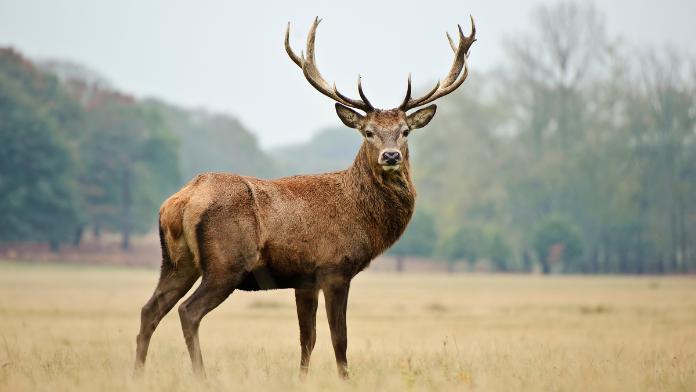Alarm in the parks of the United States: a new epidemic seems to be making its way, often lethally affecting deer and moose. The mysterious and disturbing pathology that leads to chronic wasting (CWD) is commonly known as “zombie deer disease”. It is a neurological pathology that threatens animals but which is feared could also become a risk for public health, the ecosystem and food safety.
Symptoms and origin of the pathology
Zombie deer disease is caused by abnormal prions, which are misfolded proteins capable of transmitting the abnormality to healthy ones. It is fatal in 100% of cases and causes terrifying symptoms. Among these, there are evident behavioral changes such as:
irrational aggression; lack of fear towards man; loss of motor coordination and limping gait with repeated stumbling; extreme thinness; intense drool production; blank stare, disorientation and lethargy.
From America to Northern Europe: where the disease is widespread
Zombie deer disease has attracted international attention in recent times, but i first documented cases date back to the 1960s, when it was first observed in the United States, in Colorado. Since then, it has spread alarmingly, affecting many regions of North America, including parts of Canada, as well as some countries in Northern Europe. Based on data from Centers for Disease Control and Prevention (CDC) US, the disease has so far been found in 414 counties in 31 different states in the US.
It’s difficult to eradicate
Unlike other infectious diseases, zombie deer disease appears to persist in the environment for long periods of time, making its eradication particularly difficult. Furthermore, laboratory tests have shown that the disease can infect human cells and there are no treatments or vaccines to combat it.
To date, however, there are still no cases in humans, but the explosive spread of the disease and the frequent contact between deer and humans – especially hunters – and the consumption of infected meat can trigger the fuse at any time.
What impact on the ecosystem?
The consequences of zombie deer disease are not limited to the health of the affected animals, but extend to the ecosystems in which they live. Because deer are a crucial part of the food chain in many areas, their disappearance or decline in populations can have cascading effects on other species. Furthermore, the altered behavior of sick deer may increase the risk of disease transmission to other animal species, including humans.
Zombie deer disease: how it happens contagion with humans?
Although there is no evidence that zombie deer disease can infect humans directly, there are legitimate concerns about cross-transmission. Experts advise caution when handling and consuming meat from deer and elk caught in areas where the disease is widespread. Be careful when walking in places where sick deer live, as soil and water can be contaminated for a long time.
Preventive measures include active surveillance of deer populations, promotion of sustainable and responsible hunting, cleaning and disinfection of hunting equipment, and proper disposal of sick or dead deer.
Zombie deer disease: how to limit its spread
In order to combat the spread of zombie deer disease, it is essential to invest in scientific research to better understand the pathology, transmission patterns and control strategies. Monitoring and surveillance measures are crucial to detect outbreaks early and limit their spread. Additionally, it is critical to educate the public and engage the community in responsibly managing deer populations and adopting sustainable hunting and wildlife management practices.
